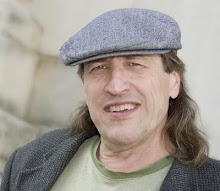 May 26, 1980
May 26, 1980
The curtains flutter in the wind as a rise, testifying – along with the cracked shade – to the poor condition of this cold water flat I live in. The shade knocks against the still cool glass, brisk outside even this late in season. The sun strobes into the room as I dress for jogging.
Outside, Passaic comes alive with the whine of starting cars and the bump of trucks up 8th Street as traffic barges towards the Monroe Street Bridge to cross into the Garfield side of the river because repairs on the Wall Street Bridge are not yet done.
The angry voices rise and fall in a ritual so familiar I no longer fear a shoot out or the wail of sirens.
I love when a spring day starts out cool, letting me start my jog without breaking a sweat, seeing the long stretch of the River Road running along the straightest part of the Passaic River – both strolling side by side for miles like lovers from the great turn north of Paterson near Hawthorne until the great blending far south near Newark, Jersey City and Bayonne where combining with the Hackensack, it ceases to be a river at all.
My pounding sneakers take me back through time, passed the icons of my own life and the life of my family, my mother, uncles, grandfather, and his father and grandfather, all having resided on these shores, swimming in these waters, making their livelihood on the banks. They even used to eat the fish out of the river during The Great Depression, when they lived near or in, Grandma Jenny’s Hardware Store on Passaic Street.
This river runs through my blood line the way the air rushes in and out of my lungs, its tide the tide of our lives. There must be some reason why my grandfather became a boat builder after a heart attack forced him to cease building houses?
I know that I run through a landscape that still echoes their lives, closed car lots, foundations of old buildings rotting out in search of new development. The gravel under my feet the same gravel my family walked when these institutions still functioned, some taverns – including the dives on Monroe Street – filled with men and maybe women who even know my family, the old timers clutching bottles of beer as their peer out smoke-stained glass at the last of the factories and mills, brick faces forming strange palisades along the Passaic and Clifton shores.
Each part of this river has its own personality, this narrow slice between Wall Street and Service Diner above Outwater Lane the calmest, and oddest, since it is unlike the river I knew as a kid – the wetlands near the Route 46 bridge, the place me and Dave Fetterman spent our days pretending we lived in a Mark Twain novel, arguing over which of us was Tom Sawyer or Huck Finn.
These days, I feel more like Odysseus, a wandering sailor with oar over my shoulder, seeking some way to escape the waves, condemned to come back here each day to witness what once was.














